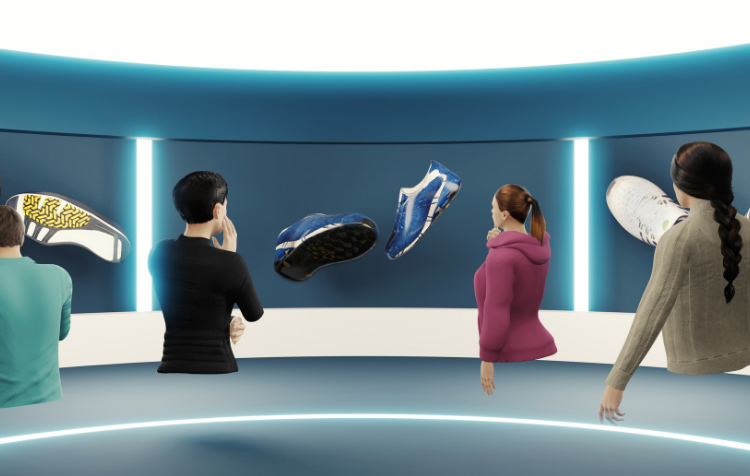The eCommerce industry is constantly evolving. Businesses that want to stay ahead of the curve need to be aware of the latest trends. In 2023, there are a number of key trends that businesses should watch out for. Here’s the list:
1) Personalization is the future
Consumers will demand more personalized and relevant products and services. They seek to save time and find the best deals. Personalization can boost customer engagement, retention, and revenue. Ecommerce businesses should use data and analytics. This will help them understand their customers’ preferences, needs, behavior, and feedback, and tailor their offerings accordingly.

2) AR/VR transforms how we shop
Augmented reality (AR) and virtual reality (VR) will revolutionize ecommerce by enabling customers to try on products virtually before buying them online. AR/VR can enhance customer confidence, satisfaction, and loyalty. Ecommerce businesses should leverage AR/VR capabilities to showcase their products in realistic and interactive ways.

3) Videos and interactive content dominate
Video and interactive content are becoming increasingly important for online marketing. These types of content can capture customer attention and interest in a way that static text and images cannot. Ecommerce businesses should create high-quality videos and interactive content for their websites or apps that can educate, entertain, or inspire their customers.

4) Mobile shopping accelerates
More and more consumers will use their smartphones to shop online, as mobile devices offer convenience, speed, and security. Mobile commerce is expected to account for 72.9% of ecommerce sales by 20231. Ecommerce businesses should optimize their websites and apps for mobile devices, offer mobile payment options, and leverage mobile marketing channels.

5) Social eCommerce rises
Social media platforms such as Facebook, Instagram, Pinterest, and TikTok will become major players in ecommerce, as they integrate shopping features and tools to make purchasing more seamless. The global social commerce is projected to reach $604.5 billion in 20231. Ecommerce businesses should leverage social media to showcase their products, engage with their customers, and drive traffic to their websites or apps.

6) Artificial intelligence enhances customer experience
AI will play a key role in ecommerce, as it can help businesses personalize their offerings, recommend products, predict customer behavior, optimize prices, automate customer service, and more. AI-powered ecommerce is expected to generate $27 billion in revenue by 20232. Businesses should invest in AI solutions that can improve their customer experience and increase their conversions.

7) Sustainability and ethics matter
Consumers will become more conscious of the environmental and social impact of their online purchases. They will prefer to shop from brands that align with their values. Sustainability and ethics will become a competitive advantage for ecommerce businesses. They attract and retain customers who care about these issues. Ecommerce businesses should adopt sustainable and ethical practices in their products and packaging. Encouraging eco-friendly materials, reducing waste, lowering carbon emissions, supporting social causes, and being transparent about their supply chain enables sustainability.

8) Omnichannel shopping becomes the norm
Consumers will expect a seamless and consistent shopping experience across multiple channels, such as online, offline, mobile, social media, etc. Omnichannel shopping can increase customer loyalty, satisfaction, and spending. Ecommerce businesses must provide flexible fulfillment and return options.
Enabling in-store associates to access customer account details: This allows in-store associates to provide personalized assistance to customers, such as recommending products based on past purchases or helping customers find items that are not in stock.
Ensuring in-store inventory in real-time online: This helps to prevent customers from making a purchase only to find out that the item is not in stock.
Investing in AR and other immersive technologies: AR and other immersive technologies can help customers to visualize products in their own homes or businesses before making a purchase. This can help to reduce the number of returns and improve the overall customer experience.

9) Cross-border eCommerce expands
Cross-border e-commerce is growing rapidly, as consumers seek to access a wider variety of products from different countries at lower prices. The global cross-border e-commerce market will reach $1 trillion by 2023. Businesses should explore new markets and opportunities abroad by offering localized websites or apps, multiple payment options, fast and affordable shipping options, and customer support in different languages.
Businesses providing the best possible shopping experience for their customers are well-positioned for success in the years to come.

Tulfa: The Future of eCommerce
The eCommerce industry is constantly evolving, and businesses that want to stay ahead of the curve need to be aware of the latest trends. One of the most important trends is the rise of augmented reality (AR). AR is a technology that superimposes a computer-generated image on a user’s view of the real world.
For example, AR can be used to create realistic and immersive product visualizations. This allows customers to see how a product would look in their own home or office, which can help them make more informed purchase decisions. AR can also be used to provide customers with interactive product demonstrations. This can help customers learn more about a product and how it works, which can also lead to more sales.
Tulfa is a leading provider of AR solutions for eCommerce. We offer a range of services that can help businesses create realistic and immersive product visualizations, interactive product demonstrations, and more. We have a proven track record of delivering efficient and effective solutions to our clients. At Tulfa, we enable businesses to stay ahead of the curve in the ever-evolving eCommerce industry. To know more, write to us at: hello@tulfa.com



